Does Xylitol Whiten Teeth?
No, xylitol itself does not whiten teeth in the way that bleaching agents like hydrogen peroxide do. Its primary role in dental care products is to reduce the levels of decay-causing bacteria in the mouth, not to remove or bleach stains from your enamel.
Xylitol is a sugar alcohol that bacteria cannot metabolize into harmful acids, which means it supports a neutral pH level in our mouths. This reduces the risk of acid erosion that can make our teeth appear duller and more yellow over time.
However, by contributing to a healthier oral environment and reducing plaque buildup, xylitol can indirectly support the maintenance of whiter teeth.
Plaque can harbor stains and contribute to discoloration, so minimizing plaque formation can help keep your teeth looking brighter.
For those interested in specifically whitening their teeth, you should look for products formulated with whitening agents alongside xylitol-containing products for overall oral health.
For effective teeth whitening, consider using toothpaste with ingredients known for their whitening properties, such as hydroxyapatite or baking soda.
These methods can more directly address surface stains and discoloration, while using xylitol products can support your oral health as part of a comprehensive oral hygiene routine.
In this article, I'll explain everything you need to know about xylitol and whitening teeth.
First, what is xylitol?
Xylitol is a unique, naturally occurring sugar alcohol popular as a sugar substitute and sweetener in various foods and oral care products.
It is derived from sources such as birch bark, corn cobs, and certain fruits and vegetables. It is approved by the US Food and Drug Administration (FDA) as an artificial sweetener and is known for its benefits in reducing weight and health disorders.
Xylitol has gained popularity in dental care due to its ability to combat tooth decay and promote oral health. Unlike regular sugar, xylitol is not fermented by oral bacteria, which reduces the production of acids that can erode tooth enamel and lead to cavities.
Moreover, xylitol stimulates saliva production, which helps neutralize acids and remineralize teeth, supporting overall dental hygiene.
Its sweet taste and beneficial effects on oral health make it a common ingredient in chewing gums, toothpaste, mouthwashes, and other dental products.
What is xylitol toothpaste?
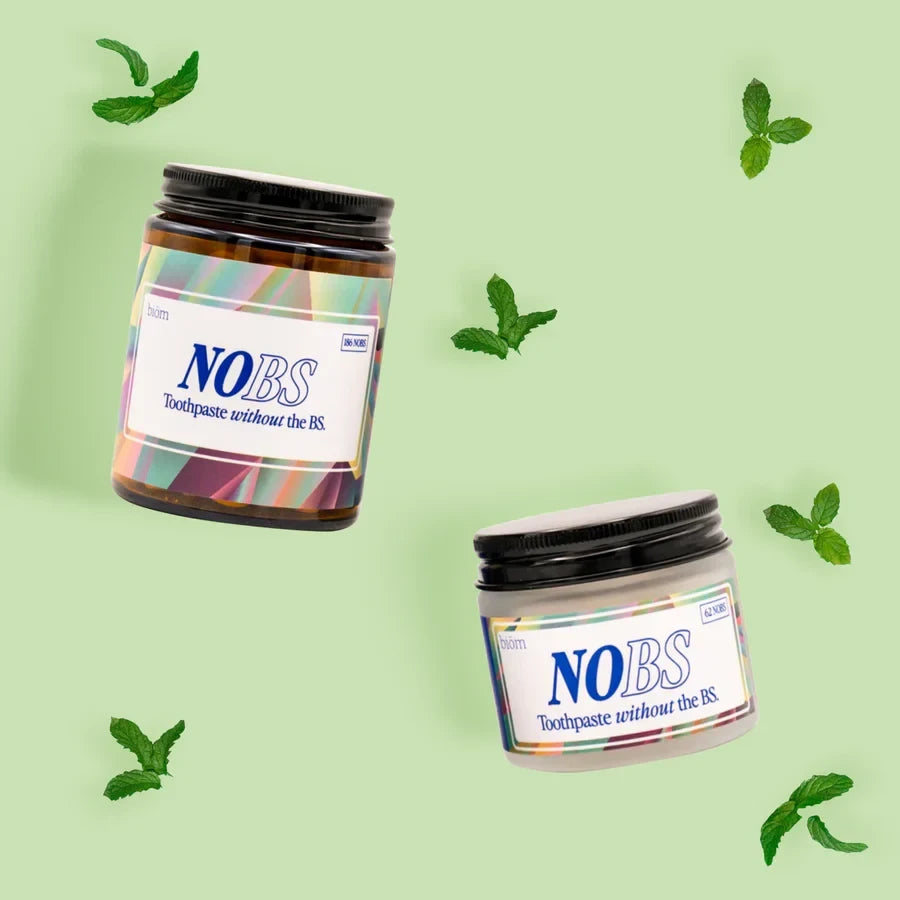
Xylitol toothpaste is a type of dental care product that incorporates xylitol as a key ingredient. Why xylitol?
Well, xylitol is a natural sugar alcohol known for its sweetening properties and oral health benefits. Unlike traditional sugars, xylitol doesn't contribute to cavities. Instead, it actively combats the growth of cavity-causing bacteria in our mouths, particularly Streptococcus mutans.
This is the bacteria responsible for producing the acidic by-products that lead to tooth decay. Xylitol works by inhibiting these bacteria, thereby reducing plaque formation and lowering your risk of dental cavities.
In addition to its antibacterial properties, xylitol also enhances saliva production, which is important for maintaining oral health. Increased saliva flow helps neutralize acids in our mouths, wash away food debris, and facilitate enamel remineralization, which can further protect against demineralization decay.
In addition to toothpaste, you can also find xylitol chewing gum and breath mints which can fight tooth decay.
Does xylitol toothpaste work?
Yes, xylitol toothpaste tablets work effectively for several reasons related to our oral health. Xylitol, a natural sugar alcohol found in many fruits and vegetables, is used in toothpaste primarily for its ability to combat cavity-causing bacteria and promote saliva production.
You see, unlike regular sugar, xylitol doesn't feed the harmful bacteria in your mouth. Instead, it inhibits the growth of Streptococcus mutans, the key bacteria involved in tooth decay and plaque formation. By reducing harmful bacteria, xylitol helps decrease your risk of dental cavities.
Further, xylitol increases saliva production which plays a key role in neutralizing acids produced by bacteria, washing away food particles, and supporting remineralization. This natural process protects us against tooth decay and strengthens teeth.
Additionally, because xylitol is a sweetener, it makes toothpaste more palatable without the negative effects of sugar, enhancing the appeal of brushing.
Finally, studies have shown that regular use of xylitol-containing toothpaste can lead to a significant reduction in tooth decay and improvement in oral hygiene.
What does the research on xylitol toothpaste say?
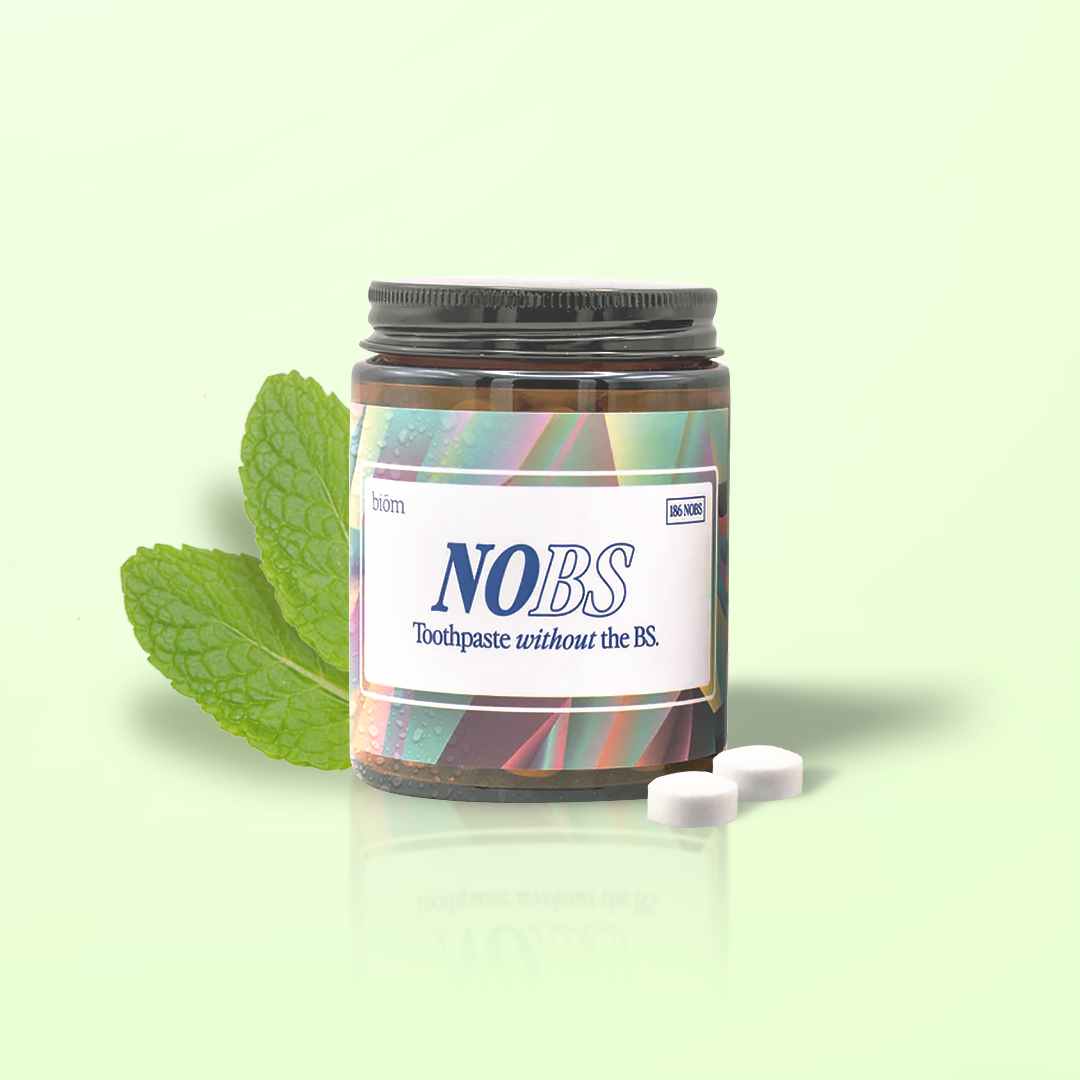
Research on xylitol toothpaste shows that it has positive outcomes for oral health, particularly when it comes to reducing your risk of cavities. Here are four of the most important research findings regarding the benefits of xylitol in toothpaste:
-
Cavity Prevention: Studies have demonstrated that xylitol inhibits the growth of Streptococcus mutans, the primary bacteria responsible for tooth decay. Xylitol's unique structure allows it to interfere with bacterial growth and acid production, reducing the risk of cavities.
-
Saliva Stimulation: Xylitol has been shown to stimulate saliva production, which is beneficial for our oral health and works by neutralizing acidity and protecting our enamel. This action helps protect against tooth decay and strengthens teeth.
-
Remineralization of Tooth Enamel: Research suggests that xylitol can enhance the remineralization process of tooth enamel, potentially reversing early signs of tooth decay. Interestingly, a study in "Caries Research" indicated that xylitol, when combined with remineralizing toothpaste, offers a synergistic effect that enhances the remineralization of enamel.
-
Reducing Plaque Formation: Xylitol has been associated with a reduction in plaque formation on teeth. Since it doesn't serve as a food source for oral bacteria like traditional sugar does, its use in toothpaste can lead to less plaque buildup and a lower risk of periodontal diseases.
Of course, it's important to note that xylitol toothpaste works best when used in conjunction with regular use of expanding floss, alkaline mouthwash, and tongue scrapers.
Dental Benefits of Xylitol
Xylitol offers many benefits for our oral health, making it a standout ingredient in toothpaste and other dental care products. Let's walk through 5 of the most important benefits together.
PREVENTS CAVITIES
One of the most celebrated benefits of xylitol is its ability to prevent cavities.
Xylitol works by inhibiting the growth of Streptococcus mutans, a cariogenic bacteria primarily responsible for tooth decay. Unlike regular sugars that feed harmful oral bacteria, xylitol can't be metabolized by these bacteria, thereby reducing their growth and the acids they produce that wear away at enamel.
Research suggests that regularly using xylitol toothpaste can significantly lower your risk of developing dental cavities, offering a proactive approach to oral health.
REDUCES PLAQUE
Plaque buildup is a major contributing factor to dental health issues, including cavities and gum disease. Thankfully, xylitol is known for its ability to reduce the amount of plaque-forming bacteria in our mouths.
Since xylitol doesn't serve as a food source for these bacteria, their ability to stick to teeth and form plaque is diminished. This process helps keep your teeth cleaner and healthier, reducing the likelihood of oral health problems down the line.
ENHANCES SALIVA PRODUCTION
Saliva is a natural defense mechanism against tooth decay, and xylitol helps enhance its production. By stimulating saliva flow, xylitol helps neutralize acids in the mouth, washing away food particles, and keeping the mouth moist.
This increased saliva production is particularly beneficial for those of us suffering from dry mouth, a condition that can increase the risk of tooth decay and gum disease.
REMINERALIZES TEETH
Remineralizing teeth is one of the most important benefits of xylitol. Your saliva, stimulated by xylitol is rich in important minerals like calcium and phosphate which your body uses to remineralize, repair, and strengthen your enamel.
This process not only reverses tooth decay but also fortifies your teeth against future erosion.
TASTES GREAT
Beyond its health benefits, xylitol is naturally sweet and adding it to toothpaste makes it more enjoyable to brush with, especially for children and those who are sensitive to the taste of traditional toothpaste.
This pleasant taste encourages regular brushing and contributes to better oral hygiene without the negative effects of sugar.
Benefits of Xylitol in Its Different Forms
Xylitol is not only found in toothpaste but is also available in various forms, such as gum and sugar-like granules. It may offer benefits beyond just promoting oral health.
Weight Management Support
Research suggests that this low-calorie sweetener can enhance feelings of fullness, potentially helping individuals feel satisfied longer after meals.
Choosing sweets made with xylitol instead of traditional sugar can help avoid the empty calories associated with sugar.
This substitution may be beneficial for those aiming to manage their weight without making significant dietary changes.
However, there is currently no evidence to suggest that switching to xylitol-containing foods leads to greater weight loss compared to conventional methods.
Prevention of Ear Infections
A study suggests that xylitol could help prevent ear infections in children.
The findings showed moderate-quality evidence indicating that administering xylitol in any form could lower the risk of acute otitis media, the most prevalent type of ear infection.
Specifically, the risk decreased from approximately 30% to around 22% compared to a control group.
However, the researchers caution that the available data is limited, and it remains uncertain whether xylitol is advantageous for children particularly prone to ear infections.
Sugar Alternative for Diabetics
Research indicates that xylitol has minimal effects on blood sugar and insulin levels, suggesting it could be a suitable sugar substitute for individuals with diabetes.
Side Effects of Xylitol Toothpaste
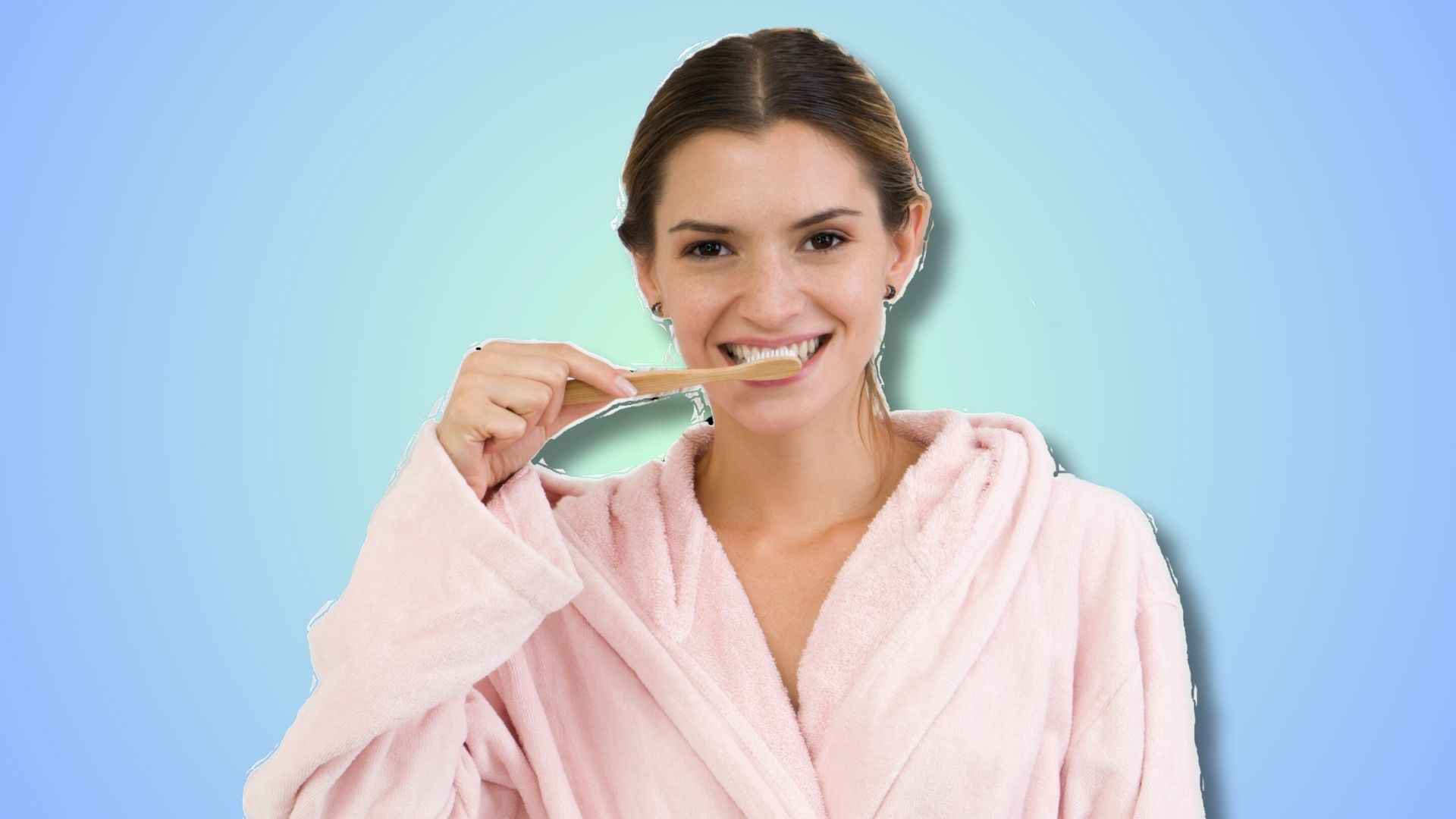
While xylitol toothpaste is widely regarded for its oral health benefits, there are a few potential side effects to be aware of.
Let's walk through some of the potential consequences of xylitol, largely related to gastrointestinal effects and its impact on individuals with certain sensitivities.
GASTROINTESTINAL DISCOMFORT
Xylitol can cause gastrointestinal discomfort for some people, especially when swallowed in large quantities.
This is because xylitol is a sugar alcohol, which can be difficult for the body to digest if consumed in significant quantities. Symptoms may include bloating, gas, and diarrhea.
However, the amount of xylitol present in toothpaste is typically small, and since you don't ingest toothpaste, this side effect is more commonly associated with xylitol in food products rather than in dental care products.
ALLERGIC REACTIONS
Although rare, some individuals may experience allergic reactions to xylitol. Symptoms could include itching, swelling, or irritation in the mouth or throat.
Anyone known to have allergies to sugar alcohols or specific sensitivities should proceed with caution and consul their dentist if they suspect an allergic reaction to xylitol toothpaste.
TOXICITY IN PETS
It's important to note that while xylitol is safe for human use, it is highly toxic to dogs and certain other pets. Even small amounts can cause hypoglycemia (low blood sugar), seizures, liver failure, or even death in dogs. Therefore, you should keep products containing xylitol, including toothpaste, out of reach of pets.
So, does xylitol whiten teeth?
No, while xylitol is good for your teeth, it does not whiten them in the same way as bleaching agents or abrasive substances. Instead, xylitol's strength lies in its ability to improve oral health, which can indirectly contribute to a brighter smile.
As a natural sugar alcohol found in many fruits and vegetables, xylitol is unique because it can't be metabolized by the harmful bacteria in your mouth that cause cavities and dental plaque. When you use products containing xylitol, such as toothpaste, mouthwash, or chewing gum, you're able to reduce the levels of these bacteria.
Less plaque and fewer bacteria mean your teeth can stay cleaner and appear whiter, as there's less buildup to cause staining and discoloration.
Also, xylitol stimulates saliva production, which is beneficial for oral health in several ways. Increased saliva flow helps get rid of food particles and neutralize acids which protects your enamel from erosion and the potential development of dental caries.
This protective effect can keep your teeth stronger and healthier, which naturally supports a whiter appearance.
Therefore, while xylitol doesn't bleach your teeth, incorporating it into your oral hygiene routine can create conditions that promote oral health and, as a result, a brighter smile.
Make sure to use it alongside teeth whitening products like whitening strips if you have particularly stubborn tooth stains.
How to Incorporate Xylitol In Your Oral Health Routine
Incorporating xylitol into your oral health routine is a smart move for enhancing dental health and potentially improving the appearance of your smile.
Xylitol, a natural sugar alcohol, is known for its ability to reduce the levels of harmful bacteria in the mouth, thus lowering the risk of tooth decay and promoting a healthier oral environment.
Here are two ways you can easily add xylitol to your daily oral care.
Brushing with Xylitol Toothpaste
Start by choosing a toothpaste that contains xylitol as one of its main ingredients.
Xylitol toothpaste not only helps reduce harmful bacteria but also often comes with other beneficial ingredients for oral health, such as fluoride or nano-hydroxyapatite, which can help remineralize and strengthen tooth enamel.
Chew Xylitol Gum
Chewing xylitol gum is an effective way to boost saliva production which can neutralize acids and support enamel remineralization. Aim to chew xylitol gum after meals or snacks when brushing isn't immediately possible.
Try Xylitol Mints
Similar to gum, xylitol mints are a handy option for freshening your breath while also delivering the oral health benefits of xylitol. They're particularly useful for moments when chewing gum might not be appropriate.
Is xylitol safe?
Yes, xylitol is safe in toothpaste. In fact, its safety and efficacy in dental care are well-documented.
You see, xylitol works differently from sugar; while sugar fuels the growth of harmful bacteria in our mouths, xylitol does the opposite. It actually can't be metabolized by these bacteria which leads to a reduction in their growth and activity.
This mechanism helps in lowering the risk of dental cavities and improving overall oral health. Further, xylitol's ability to neutralize acidity and maintain a neutral pH in the mouth supports the prevention of dental decay and cavities. That said, xylitol cannot reverse cavities.
Since xylitol can be beneficial for our oral health, you should include it in your overall daily oral care routine, including brushing with xylitol toothpaste, flossing with expandable floss, and tongue scraping.
How long does xylitol take to work on teeth?
Xylitol starts working on your teeth as soon as you use it.
It helps stop harmful bacteria from sticking to your teeth, which reduces the risk of cavities. Over time, regular use of xylitol can lower the bacteria in your mouth, improving your oral health.
You might notice fewer cavities and better overall dental health after a few weeks or months of consistent use.
However, the results can vary depending on how often you use xylitol products, like toothpaste or gum.
To get the best benefits, it’s important to use xylitol as part of your daily oral care routine. Pair it with brushing, flossing, and regular dental checkups for the best results.
Other Tips for Whitening Your Teeth

To get rid of stains on your teeth and potentially brighten your smile, incorporating nano-hydroxyapatite toothpaste into your oral hygiene routine can be an effective strategy.
But that's not all! Let's walk through some of the key tactics you can use to remove teeth staining.
USE NANO HYDROXYAPATITE TOOTHPASTE
While nHA toothpaste is not a bleaching agent like hydrogen peroxide, studies show its ability to remineralize and repair enamel can lead to a brighter appearance of the teeth.
Plus, smoother, healthier enamel reflects light better, which can make your teeth look whiter and reduce the visibility of stains.
TRY WHITENING STRIPS
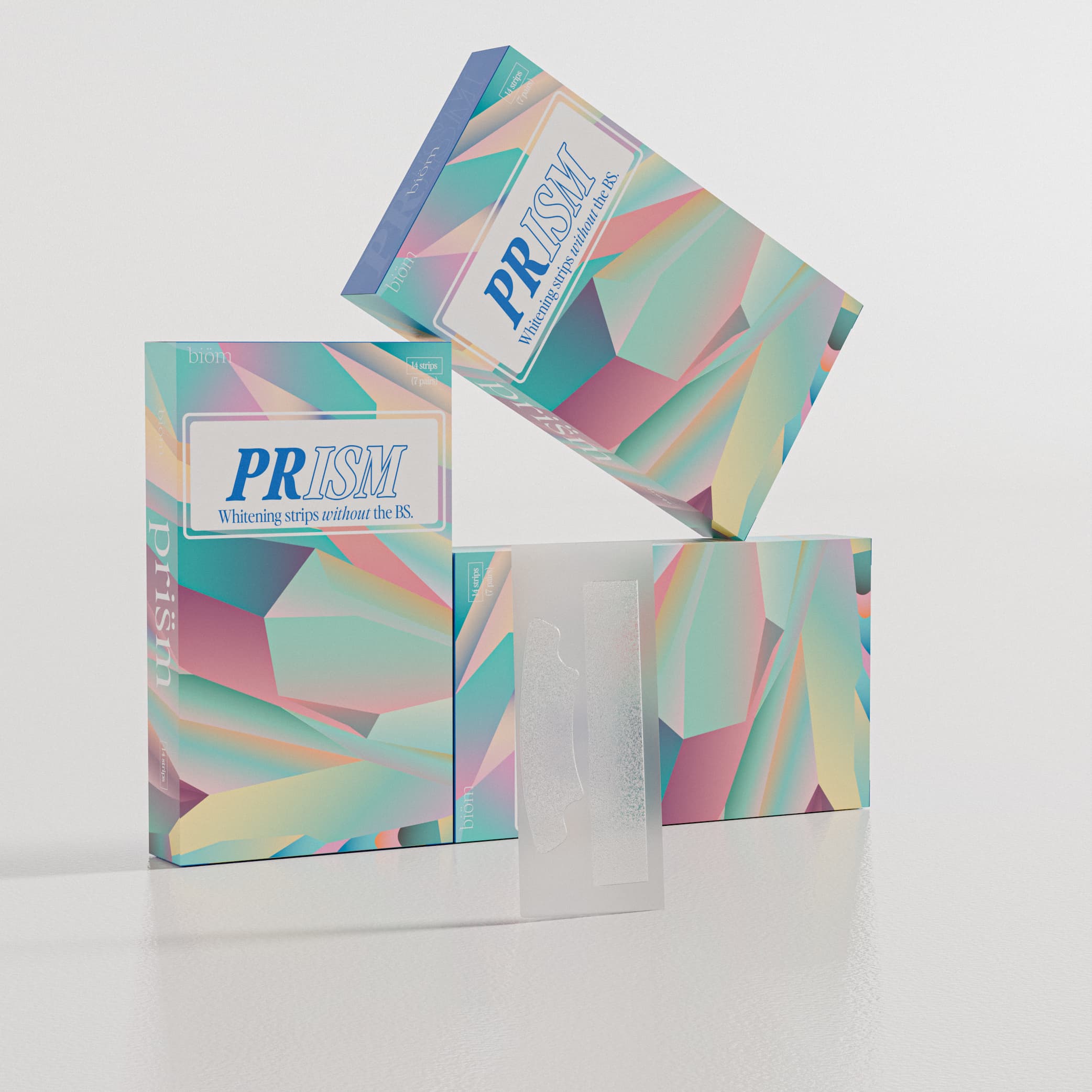
Whitening strips are a popular and effective option for removing teeth stains and achieving a brighter smile. These thin, flexible strips are coated with a whitening gel that typically contains hydrogen peroxide or carbamide peroxide as the active ingredient.
Whitening strips are effective for many people, offering noticeable whitening by several shades. They are particularly good at addressing stains from coffee, tea, wine, and smoking.
PROFESSIONAL CLEANING
Regular visits to the dentist for professional cleanings can remove surface stains more effectively than brushing alone. Dental hygienists use specialized tools and techniques to gently remove plaque and stains, including those caused by tea.
DAILY ORAL HYGIENE
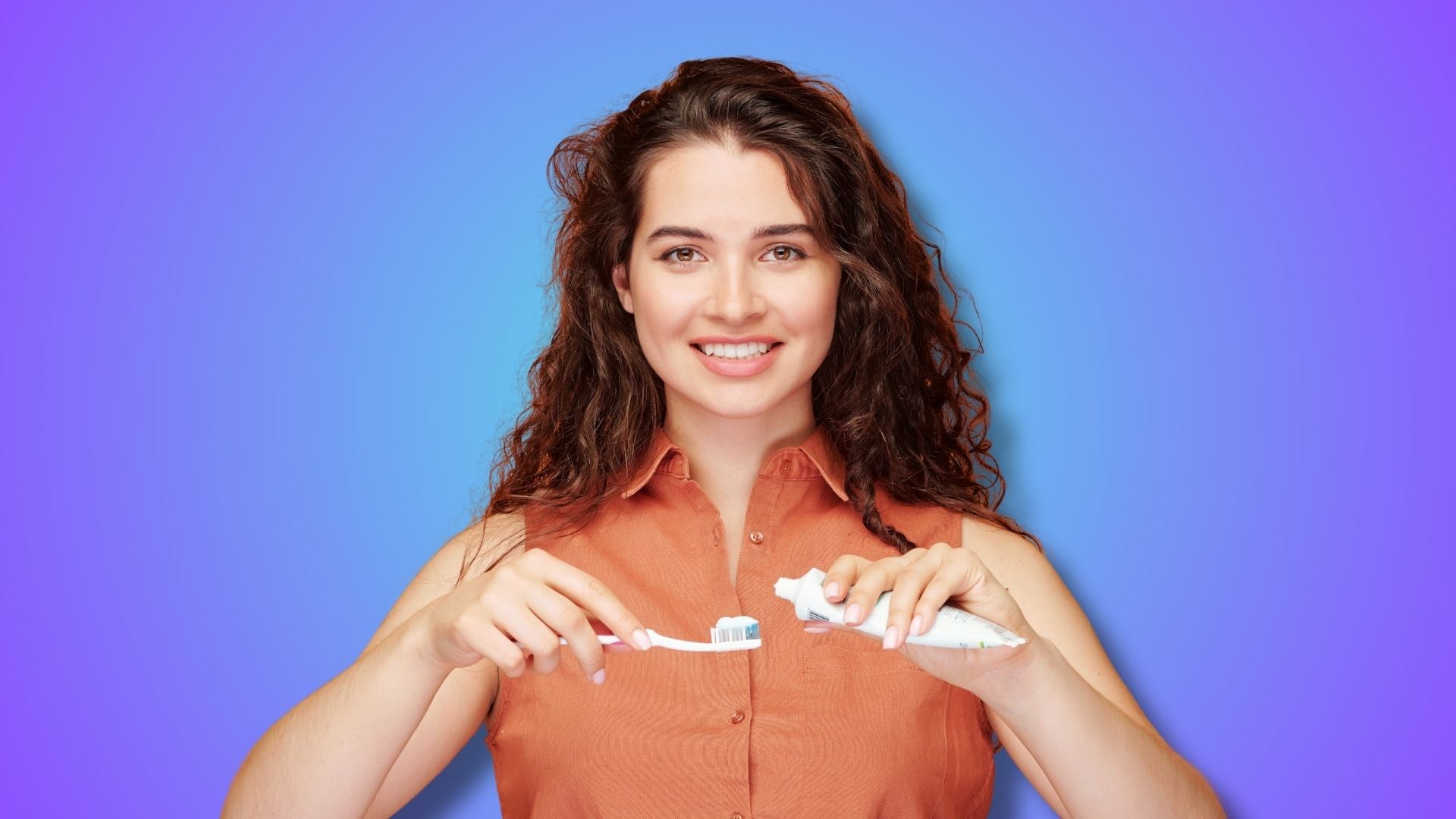
Brush your teeth at least twice a day and floss daily. You should consider using an electric toothbrush with a whitening head to enhance stain removal.
DIETARY ADJUSTMENTS
Limit or avoid foods and beverages known to stain teeth, and consume them in moderation. Then, when you do dine with coffee or tea, you can rinse out your mouth with water to remove staining compounds or brush your teeth afterward.
WHITENING TREATMENTS
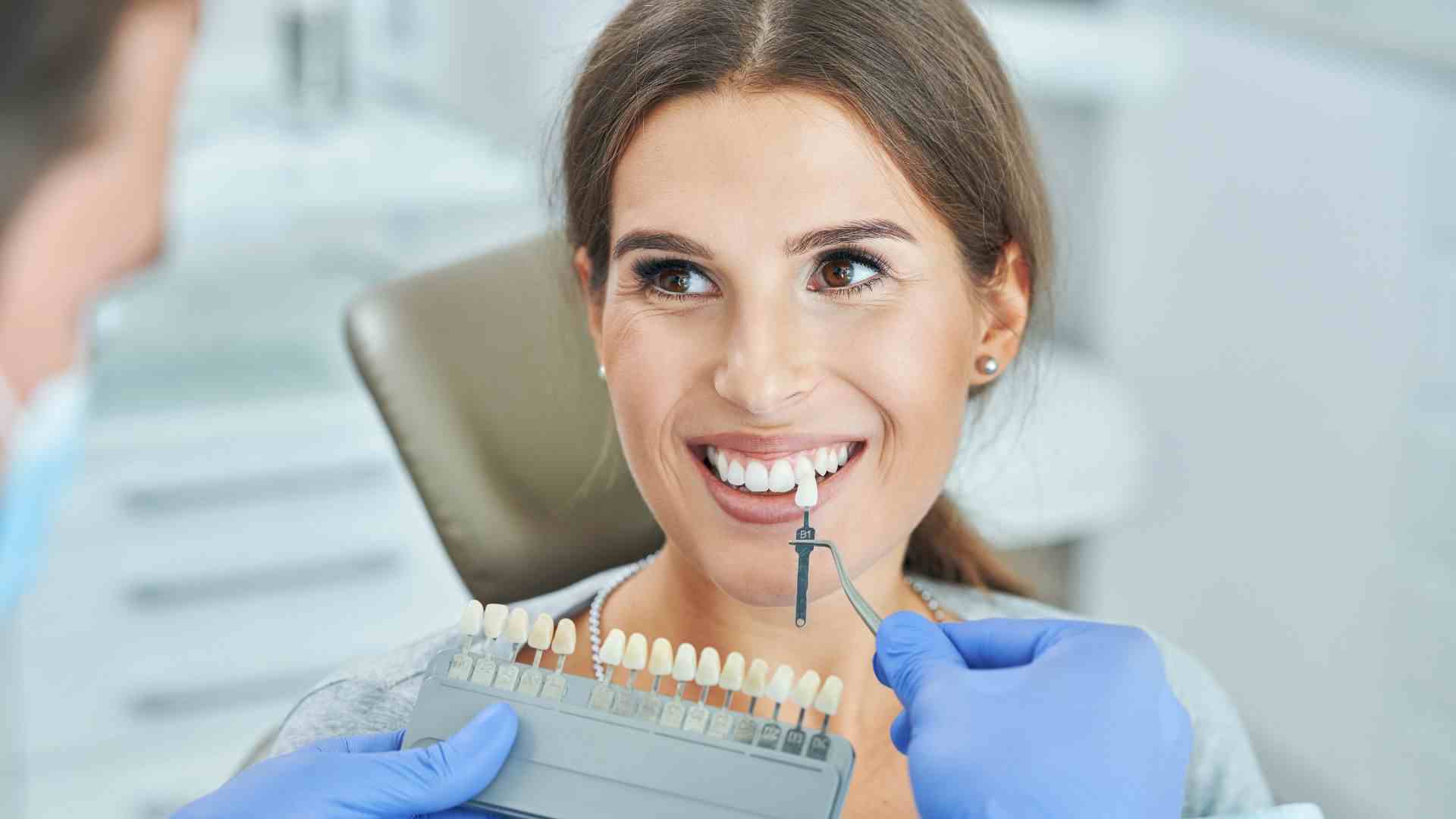
For more stubborn stains, consult with your dentist about professional whitening treatments. These treatments can offer more dramatic results than over-the-counter products.
Frequently Asked Questions
How long does it take for xylitol to work on teeth?
Xylitol typically starts working on teeth within a few minutes of exposure. Its effectiveness can vary depending on factors like frequency of use and individual oral health. For noticeable benefits, consistent use over a period of weeks to months is best for you. However, it's important to maintain good oral hygiene practices alongside xylitol consumption for optimal results.
Does xylitol repair tooth enamel?
While xylitol promotes dental health by reducing bacteria and preventing tooth decay, it does not directly repair tooth enamel. However, it can support the natural remineralization process of enamel by creating an environment conducive to calcium and phosphate uptake. This helps to strengthen and protect enamel over time, but it's not a substitute for professional dental care or treatments aimed at repairing enamel damage.
Can you brush your teeth with xylitol?
Yes, you can brush your teeth with xylitol, as it is a natural sugar alcohol recognized for its dental benefits. Xylitol is often found in toothpaste and oral care products specifically because it can help reduce cavity-causing bacteria in the mouth. When used in toothpaste, xylitol helps to neutralize acids, thereby protecting the enamel and preventing tooth decay. Brushing with xylitol-containing toothpaste not only cleans the teeth but also promotes remineralization of the enamel, making it stronger over time. Furthermore, xylitol stimulates saliva production, which enhances oral health by maintaining a neutral pH level in the mouth and washing away food particles.
Why do dentists like xylitol?
Many dentists do recommend xylitol as part of a dental hygiene regimen. Xylitol has been shown to help reduce the risk of tooth decay by inhibiting the growth of bacteria that cause cavities. It is often found in dental products such as toothpaste, mouthwash, and chewing gum, which are recommended by dentists for their oral health benefits. However, it's essential to use xylitol products as directed and in moderation to maximize their effectiveness and minimize any potential side effects.
Is it OK to have xylitol everyday?
Yes, it is generally considered safe to consume xylitol every day as part of a balanced diet, within recommended limits. The FDA recognizes xylitol as safe for human consumption, and regular use can provide dental benefits, such as reducing the risk of tooth decay and promoting oral health. However, like any sugar alcohol, consuming xylitol in large amounts can lead to digestive issues for some people, including bloating, gas, and diarrhea. It's advised to gradually introduce xylitol into your diet to assess your body's tolerance. For dental benefits, consuming 5-10 grams of xylitol spread out over three to five servings each day is often recommended.
How does xylitol affect the bacteria and plaque in our mouths?
Xylitol helps reduce the levels of harmful bacteria in the mouth, particularly Streptococcus mutans, which is a major contributor to tooth decay. By inhibiting the growth of these bacteria, xylitol disrupts the formation of dental plaque. Additionally, xylitol can promote saliva production, which further aids in neutralizing acids and enhancing oral health. Overall, its antibacterial properties make it a beneficial addition to oral hygiene practices.
Are there any negative effects associated with consuming xylitol?
While xylitol is generally safe for most people, excessive consumption can lead to digestive issues, such as gas, bloating, and diarrhea, particularly in individuals who are not used to it. It's important to note that xylitol is toxic to dogs, so it should be kept away from pets. Additionally, some people may experience allergic reactions, although these cases are rare. Moderation is key to enjoying the benefits of xylitol while minimizing potential side effects.
What is the suggested daily intake of xylitol for maintaining oral health?
The recommended daily intake of xylitol for oral health is typically 6 to 10 grams, sourced from xylitol-sweetened gum, mints, or toothpaste. It’s most effective when consumed after meals to reduce plaque and promote a healthier mouth. Incorporating nano-hydroxyapatite into xylitol products, particularly toothpaste, enhances their effectiveness by supporting remineralization and strengthening enamel. For personalized advice, consult a dental professional.
Is it safe to use xylitol than other whitening toothpaste?
Yes, xylitol is generally safer than other whitening toothpastes. Xylitol helps reduce cavity-causing bacteria and can improve oral health without the abrasiveness found in some whitening formulas. It also doesn’t wear down enamel, making it gentler for daily use. However, it’s still important to consult your dentist for personalized recommendations.






















